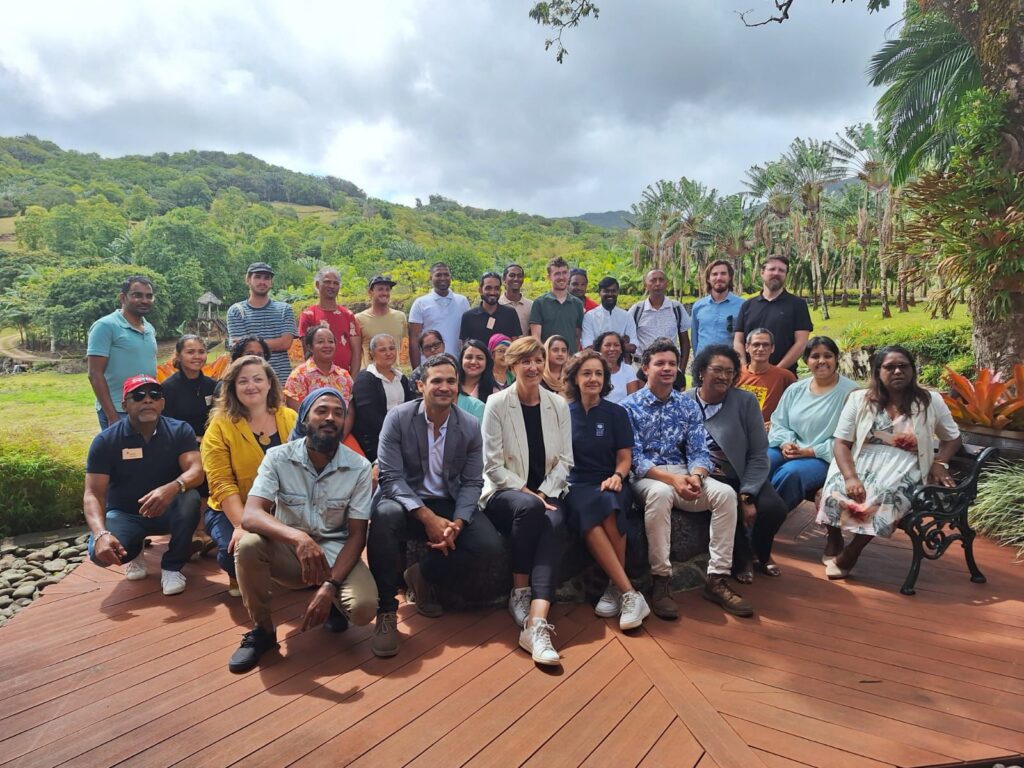The Mauritian ecological calendar was full of events on October 10 in Chamouny: the closing of the EMBEROI III program (2021-2024) and the 10th anniversary of the Le Vélo Vert association, which led the operation.
For the occasion, the latter presented its brand new identity, the Terres d’Agroécologie collective brand. Driven by the objective of revitalizing local agriculture by moving towards more environmentally-friendly production methods, the movement aims to meet local food needs, while protecting our ecosystems.
As for EMBEROI III, the three years of concrete, ongoing action in the field, in Mauritius and Indianoceania, have just come to an end, with funding from the European Union and support from the MCB and the UNDP (United Nations Development Program). Phase 3 of the program focused on expanding organic market gardening and building up regional expertise.
Training
The EMBEROI III project has led to the creation of a dedicated academy to train some 40 agripreneurs and agricultural professionals between 2023 and 2024. A network of agroecological farms has also demonstrated the effectiveness of ecoresponsible practices, through concrete examples of market gardening, agroforestry, compost production and resource conservation. Finally, efforts were made to raise public awareness of the benefits of agroecology, while adapting practices to the specific conditions of Mauritius.
Support
In addition to the distribution to beneficiaries trained under the EMBEROI III program of gift vouchers worth Rs 15,000, earmarked for agricultural tools and compost, the closing ceremony saw the presentation of a digital platform (currently in the test phase) for marketing agroecological fruit and vegetables. The Terres d’Agroécologie E-Market, developed with the financial support of the MCB, will directly connect producers and consumers, who can be assured – and thus reassured – of total product traceability.
Sustain
Terres d’Agroécologie has also signed two strategic international cooperation agreements. Firstly, with CIRAD (Centre de coopération internationale en recherche agronomique pour le développement), to identify and test more sustainable agricultural practices, better manage natural resources, diversify crops and increase producers’ resilience to the effects of climate change, at local and regional levels. Secondly, with New Maurifoods, a subsidiary of the Eclosia group which operates in local food production and distribution, with the aim of setting up a labelling process for products and guaranteeing their fundamental nutritional quality.
